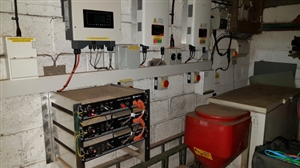I have just been asked about solar panels in a domestic environment and not wanting to guess and likely get it wrong, thought best to ask here.
With solar panels are you paid for what you generate in total, ie the output from the inverter? Or are you paid for the net amount that you actually export ie the difference between the inverter output and whatever is being used in the property?
Thanks.
Clive

